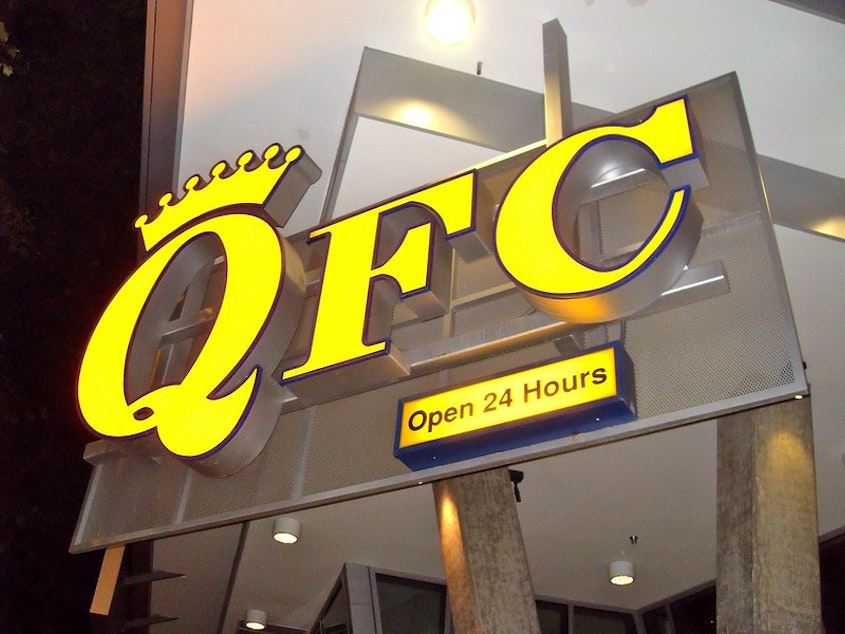Will those 413 Kroger and Albertsons stores stay open — or be sold for their land value?

Union leaders representing grocery workers are denouncing the proposed sale of 413 Kroger and Albertsons stores across the country as part of the merger. Of those stores, 104 are in Washington state.
They question whether the buyer, C&S Wholesale Grocers, intends to operate the stores.
John Marshall is the financial analyst for UFCW 3000, the union representing grocery workers across the Northwest. He says the agreement with C&S doesn’t include assets like customer data.
“This is a critical missing piece that you would need to successfully operate these retail stores,” Marshall said.
Kroger and Albertsons say C&S is a well-capitalized company, and that no stores will close as a result of this divestiture plan.
Sponsored
But the unions aren’t convinced.
“This proposed transaction has very concerning echoes of the disastrous 2015 Albertsons Safeway divestiture to Haggen,” Marshall said.
Back then, Albertsons sold 146 stores to regional chain Haggen. But in less than a year, Haggen filed for bankruptcy. Most of the stores were sold back to Albertsons.
Marshall says this was not a foolish gamble by Haggen and co-owner Comvest Group. He points to court documents indicating Haggen and Comvest were aware of the risks of expanding into new geographical areas, but went ahead anyway.
“They realized the transaction was quote, 'too juicy to pass up,' because the real estate value was greater than the purchase price they were being asked to pay.”
Sponsored
That transaction, he added, involved separating the real estate assets from the operating company which increased the likelihood of bankruptcy.
In addition to the 413 stores under Kroger’s divestiture plan, the deal includes eight distribution centers, three banners, and five private label brands.
Marshall says store real estate alone is potentially worth up to $3 billion.
Union officials say there are a lot of questions about the sales to C&S, including how the deal is being structured, or who are the co-investors. Without those crucial details, they say history could repeat itself.
C&S is primarily a wholesaler, but operates grocery brands Grand Union and Piggly Wiggly. C&S says the sale provides an exciting opportunity to expand into the retail market. The company's last purchase was in 2021, when it bought 12 Tops Stores in New York and Vermont following that company’s merger with Price Chopper.




